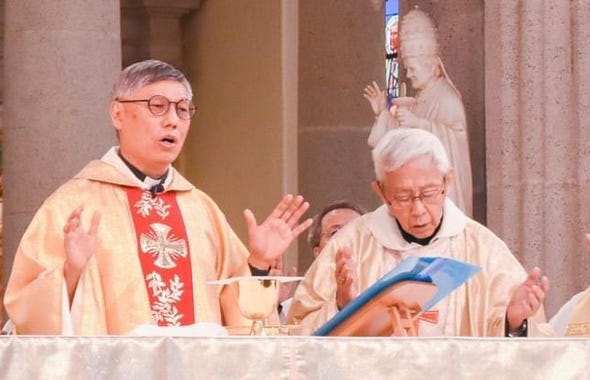Zen threatens boycott of HK cardinal’s Mass if Beijing bishop attends
Cardinal Stephen Chow has invited Bishop Li of Beijing to his Mass of thanksgiving Nov. 4 but it is uncertain if he will be allowed to attend
The Hong Kong diocese is facing a diplomatic controversy ahead of a Mass celebrating the diocese’s newest cardinal, over the invitation of a bishop close to the Chinese Communist Party and Beijing government.

Cardinal Stephen Chow, SJ, of Hong Kong will celebrate on Saturday a Mass of thanksgiving for his elevation to the College of Cardinals.
But sourc…
